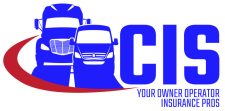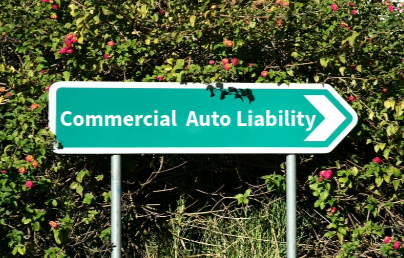Trucking Insurance starts with Commercial Auto Liability
Here’s a quick and easy truck liability cheat sheet to help truckers remember what kind of liability insurance they need.
So what kind of liability do you need to haul freight for hire?
Let’s break it down.
Commercial Auto Liability Insurance Explained
Commercial Auto Liability Insurance is what you need if you accidentally damage something or hurt someone while driving your truck.
It’s the insurance required by law for you to be on the road.
If you’ve heard people mention Primary Insurance, this is what they’re talking about.
Think of it like your personal auto insurance, but since you’re an Owner Operator of a Commercial Vehicle, your responsibilities—and coverage needs—are bigger than what your regular car insurance handles.
How Your Commercial Auto Liability Insurance Works
When you buy any insurance policy, you’re basically making a bet.
In the case of Commercial Auto Liability, you’re betting a truck accident might happen, while the insurance company is betting it won’t.
Here’s what happens if there’s an accident:
- If it’s your fault, your insurance covers the damages, up to your policy limits.
- If it’s unclear who’s at fault and you’re sued, this insurance steps in for the legal costs to defend you, up to your policy limits.
Commercial Auto Liability Insurance isn’t just a legal requirement—it’s there to protect you and your business.
When do you need Commercial Auto Insurance?
If you’re operating a vehicle for any business purpose, you need Commercial Auto Insurance.
If you’re hauling freight for hire across state lines there are specific federal requirements regarding limits of insurance you must carry.
You’ll also need to get DOT operating authority and register your vehicle with FMCSA.
Even if you’re not hauling freight for hire across state lines, your state DMV may also require you to register your vehicle depending on whether it’s a commercial vehicle.
Not sure if your vehicle qualifies as a commercial one?
Check out What is the Definition of a Commercial Vehicle to learn more.
What Kind of Commercial Auto Liability Insurance do you Need?
Well, when it comes to trucking–it’s not a one-size-fits-all!
While all auto liability policies include bodily injury and property damage coverage, the type of policy you’ll need really depends on how you’re using your truck and who’s responsible for it.
Here’s a quick breakdown of the main coverage options for motor carriers and owner operators hauling freight for hire:
1. Primary Commercial Auto Liability
This is often referred to as simply your Primary Liability.
Basically, if you want 24/7 coverage, Primary Commercial Auto Liability is the type of policy you need.
If you’re a Motor Carrier with your own DOT operating authority, you’re required to have Primary Commercial Auto Liability—no exceptions.
This is the type of coverage your insurance company sends to the FMCSA to prove that you’re meeting their requirements.
This coverage keeps your business legally compliant and protects the public from financial harm in case of an accident.
2. Non Trucking Liability–NTL
Non-Trucking Liability–NTL–is a type of Commercial Auto coverage made for Owner Operators.
If you’re leased to a Motor Carrier and hauling under their DOT authority, this one’s for you.
This is a common arrangement between Motor Carriers and Owner Operators and here’s how it usually works:
- The Motor Carrier you’re leased on to provides the Primary Commercial Auto Liability when your truck is being used for any kind of business purpose.
- Non Trucking Liability covers you, the Owner Operator when you’re using your truck for personal reasons—basically, when you’re not driving “for the benefit of” or “on behalf of” the Motor Carrier.
Sounds simple, right?
But Non Trucking Liability coverage isn’t always so straightforward.
Terms like “operating on behalf of” can be a bit fuzzy.
Take these examples:
- Driving your truck to get a tire fixed? Even if you’re off dispatch and not hauling freight, that’s still considered “business use.”
- Courts have even ruled that running a quick personal errand during business use could void your NTL coverage.
The bottom line? Make sure you know exactly what your Non Trucking policy covers and what your Motor Carrier’s Primary policy covers so everything lines up the way you expect.
That way, you’ll know you’re fully protected.
For more examples check out Non Trucking Liability–The Most Misunderstood Insurance Coverage.
3. Unladen Liability
Unladen Liability provides broader coverage compared to Non Trucking Liability.
It applies when your truck is operating without a load, but not actively under dispatch.
- If your truck is loaded with freight, the Motor Carrier’s Primary Liability covers the Owner Operator.
- If your truck is not loaded with freight, then Unladen Liability kicks in on the Owner Operator’s side.
Unladen Liability tends to cost more than Non Trucking Liability because it provides more coverage for the Owner Operator, rather than putting most of the responsibility on the Motor Carrier.
So if your Motor Carrier requires you to carry Unladen Liability, understand that this policy will cost you more than a basic Non Trucking Liability policy.
Your Motor Carrier will be paying less for his Primary Commercial Auto Liability, and you will be paying more for your Unladen Liability policy vs a Non Trucking Liability policy .
Thinking about which Motor Carrier to haul for?
Before you decide, take a close look at their contract requirements and compare your insurance costs—Unladen vs. Non Trucking Liability can make a big difference!
If you’re an Owner Operator looking for busy Motor Carriers that only require NTL, here are three great options to check out: C&M Transport, On-Time Express, and V3 Transportation.
4. Bobtail Liability
Bobtail Liability specifically covers trucks operating without a trailer attached. While less common today—most policies have transitioned to Non Trucking Liability—Bobtail Liability is still a term you might hear in the industry. If someone says Bobtail, they usually mean NTL.
5. General Liability
General Liability often gets mixed up with Primary Liability Commercial Auto Insurance, but they’re not the same thing.
Unlike other types of coverage, General Liability isn’t required by your state or the FMCSA. That said, it’s an affordable option truckers can get to protect themselves from incidents that happen when they’re not behind the wheel.
One of the most common claims? Damage caused to a facility or people while loading or unloading freight.
You can see more examples of how this important coverage kicks in at General Liability vs. Auto Liability cheat sheet.
Remember GL as your safety net—you hope you never need it, but it’s added protection for your business activities outside your truck.
Commercial Auto Insurance Required Limits for Truckers
If you’re hauling freight for hire across state lines, the Federal Motor Carrier Safety Administration (FMCSA) requires minimum commercial auto liability coverage to make sure the public is protected from uninsured or underinsured truckers.
These insurance limits depend on what you’re hauling and the type of vehicle you’re using.
- Cargo Van & Sprinter Insurance = $300,000 minimum Primary Commercial Auto Liability
- Hot Shot Dually Insurance = $750,000 minimum Primary Commercial Auto Liability
- All trucks over 10,000 GVW hauling general freight are required to carry a minimum of $750,000 Primary Commercial Auto Liability.
- All trucks hauling hazmat are required to carry $5,000,000.
Not crossing state lines? Your State DMV will have its own rules.
If you’re an Owner Operator leased to a Motor Carrier, just follow your contract for their Non Trucking Liability requirements.
What other Truck Insurance do you need?
Well, you’re gonna want to protect your most valuable asset–your truck.
So first you’ll need Physical Damage Insurance that covers your truck for Comp and Collision Coverage.
Knowing how to value your truck is key when setting up your policy.
That way, if your truck ever gets totaled, there won’t be any surprises.
Your customers will expect you to protect their freight while it’s in your care, Motor Truck Cargo insurance.
It’s actually pretty interesting to see what’s automatically included and left out in commercial cargo coverage.
Here’s a cheat sheet: What does Motor Truck Cargo Cover?
If you’re an Owner-Operator leased to a Motor Carrier, you’ll probably need Occupational Accident Insurance too.
You can learn more at What does Occupational Accident Insurance for Truckers Cover?
If you’re new to all this, don’t worry—the ladies at CIS are here to hold your hand!
Just give us a call, and we’ll walk you through everything:)
Why Choose CIS for your Commercial Auto Liability?
Trucking insurance is all we do—day in and day out.
We know all the ins and outs to get you the best coverage at the lowest price.
Since 2002, CIS has been helping new startups and family-run trucking businesses all over the country—the men and women who Keep America Moving!
We love getting to know our clients and hearing from you! Whether you’re adding a new driver, need help with a tricky cert request, or just want to say “Hi,” we’re always here to chat and help you out.
Just getting started as a trucker?
Check out our free cheat sheet, How to Get a Motor Carrier Authority. It’s already helped hundreds of Cargo Vans, Sprinters, and Hot Shots get their DOT Authority set up and hit the road with independence. We’ve also got your back if you’re rolling with Box Trucks, Straight Trucks, Dumps, Agricultural Trucks, or Semis.
Take a look at our 5-Star Reviews and see why so many truckers start—and stick—with CIS.
We make truck insurance quick, simple, and affordable, so you can focus on what really matters—hauling freight and making money.
With the economy booming and new freight opportunities everywhere, now’s the time to get rolling.
Want more free help to get started on your road to independence?
Head over to our CIS Truck Insurance Blog or start a Commercial Truck Insurance Quote Online.
You can always just give us a call—we’d love to chat with you!
CIS (330) 864-1511
We are CIS, and We Make Your Truck Insurance Easy!
Authors
Shelly Benisch, CIC, TRS started Commercial Insurance Solutions, Inc. (CIS) in 2002 and brings over 30 years of experience in Commercial Truck Insurance. As one of the top 25 Progressive Truck Insurance Agency Leaders in 2024, she helps Motor Carriers and Owner Operators across the country find affordable trucking insurance quotes with GEICO, Progressive and more. Shelly also writes a free Trucking Blog packed with all kinds of tips. Her team of Truck Insurance Experts have earned CIS consistent 5-star reviews and Progressive's Top 25 Truck Elite Status. For expert Commercial Truck Insurance advice, give Shelly a call at (330) 864-1511
CEO
#CISDoesThat Commercial Truck Insurance for owner operators and motor carriers.Christina Cummings, TRS certified, leads Commercial Insurance Solutions, Inc. (CIS) as Executive Director and true experienced advice on Commercial Truck Insurance. She secures the most affordable GEICO quotes and Progressive quotes...and more for small Motor Carriers and Owner Operators nationwide. She is your "go to" person at CIS for advice with underwriting questions, tips and networking opportunities for Small Truckers. Under her leadership CIS earned Progressive's Top 25 Truck Elite status in 2024 and consistent 5-Star Google reviews. She also co-authors the free CIS Commercial Truck Insurance Blog for small Motor Carriers and Owner Operators, sharing her bottom line tips on how to find more affordable Commercial Truck Insurance. Looking for expert trucking insurance advice–Christina is your go to leader at (330) 864-1511 #CISDoesThat

